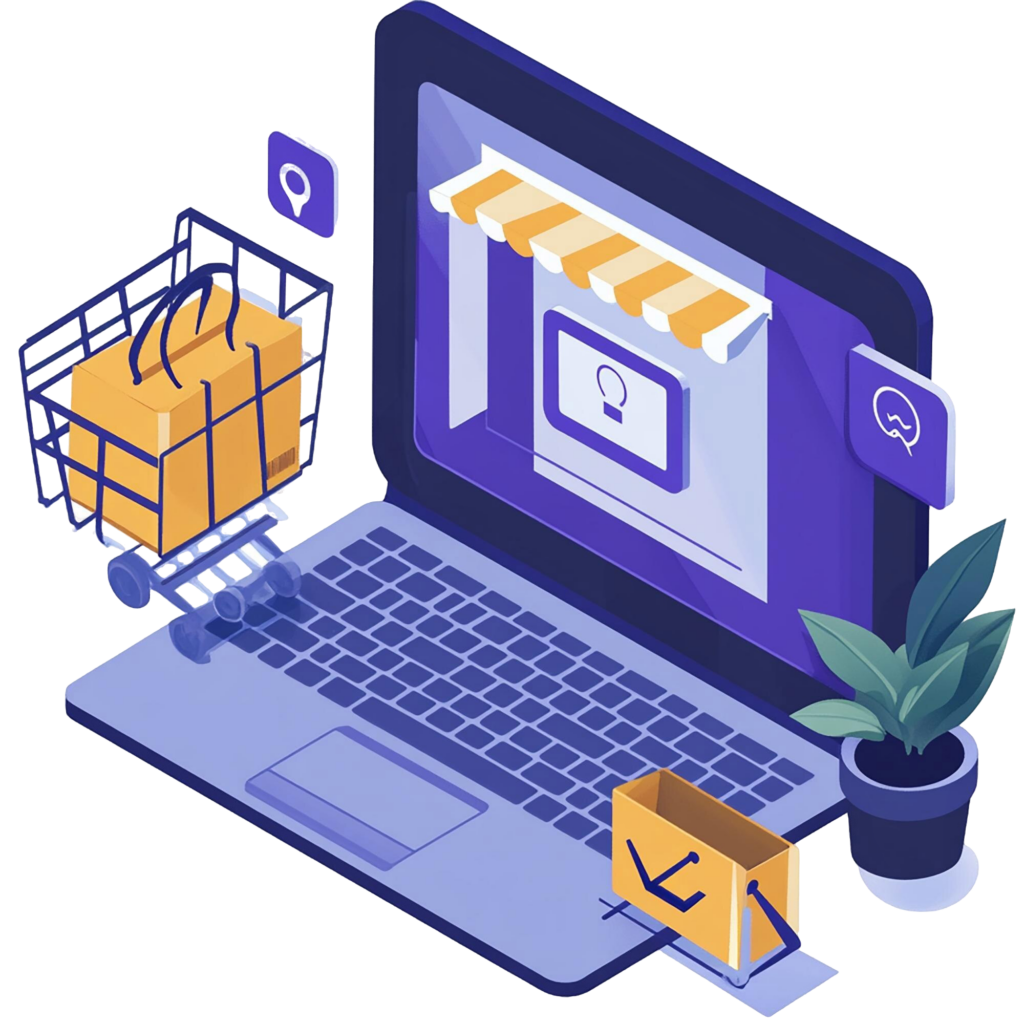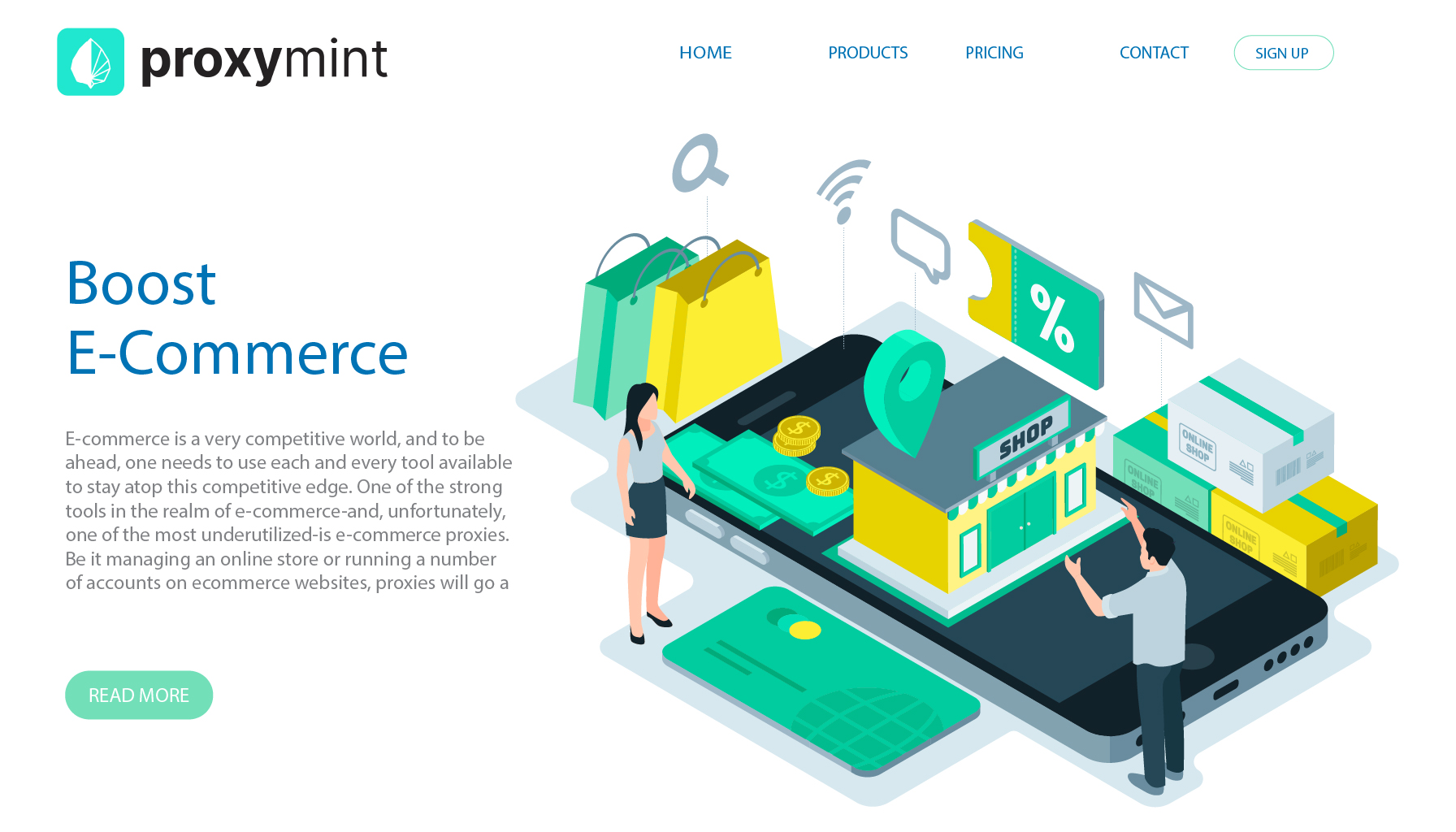
Table of Contents
E-commerce is a very competitive world, and to be ahead, one needs to use each and every tool available to stay atop this competitive edge. One of the strong tools in the realm of e-commerce-and, unfortunately, one of the most underutilized-is e-commerce proxies. Be it managing an online store or running a number of accounts on ecommerce websites, proxies will go a long way in boosting your operations, growing sales, and going deep into market trends and competitors’ strategies.
This blog explores how proxies can boost sales in e-commerce, why they are important for having a competitive advantage, and some practical applications that will help you grow your business.
How Proxies Work in E-commerce

By nature, proxies are mediators between your device and the internet, redirecting your traffic through different IP addresses. That is, websites see the IP of the proxy server, instead of your real IP. For e-commerce businesses, proxies come in handy with a range of benefits starting from data gathering and ending with account management and security. Here’s how they can help boost your sales:
- Competitive Price Monitoring
Prices in this fast-moving world of electronic commerce go up and down pretty frequently. For competitiveness, a brand needs to monitor real-time competitor pricing strategies.- Proxies allow web scraping tools to fetch pricing data from various competitor websites without getting blocked.
- Requests originate from different IP addresses, keeping your activity from being shown as suspicious.
- This stream of real-time information will enable you to continuously adjust your price offerings to assure the best deals are available for your customers at all times.
- Geo-Specific Content Access
Most e-commerce portals use geographic location to show the price, promotion, and sometimes even the products.- Proxy servers allow you to access websites just like you are browsing through different regions so that region-specific offers and pricing can be viewed.
- Especially useful for those having international operations or sourcing products from a supplier in another country. On the other hand, this enables one to make adjustments in pricing strategy according to different markets.
- Scaling and Handling Multiple Accounts
Multiple accounts are pretty common for online retailers who have to scale their business through various channels like Amazon, eBay, or Etsy. is often necessary.- These proxies assign different IP addresses to each account as it seems to be managed from different locations.
- This keeps your accounts from interlinking or raising red flags for suspicious behavior, and you are assured of operation scaling without the risk of account suspension.
- Market Research Web Scraping
Success in e-commerce starts with an understanding of market trends and customer preferences.- Proxies enable large-scale web scraping to gather critical data from competitor websites, online marketplaces, and consumer forums.
- With the analysis of reviews, ratings, and feedback by customers about any particular product, you will be able to make informed decisions on product stocking, pricing strategy, and marketing campaigns.
- Ad Verification and Marketing Strategy
Ensuring your ads are displayed correctly across different regions is crucial for effective marketing.- It verifies every advertisement for correct display in the different regions. This is going to help with effective marketing a lot.
- Proxies verify ad placement by emulating the user experience in various locations. You will then check whether your ads are correctly displayed and you will avoid wasting money on fraudulent clicks or impressions.
- Faster Access to Suppliers and Inventory Data
To businesses that rely heavily on suppliers, this is a big deal in terms of timely access to inventory data.- They allow several requests to be done over supplier websites without being blocked or hindered in order to ensure real-time levels of stock and the availability of products.
- This helps you always keep your store stocked with popular products and avoid any out-of-stock situations that may lead to lost sales.
Practical Applications of Proxies in E-commerce

- Dynamic Pricing Strategies
Apply dynamic pricing strategies that self-regulate with market conditions using proxies for real-time competitive price monitoring.- For example, in the case of a competitor’s decision to lower his price, it will be intercepted by your system and make the necessary adjustments to keep your store competitive.
- Regional Promotions and Personalization
Proxies enable you in the development of personalized marketing strategies depending on the location of the customer.- You can personalize promotions, discounts, and marketing messages toward a specific region; this increases the probability of conversion by appealing to regional needs.
- Multi-Supplier Account Management
Proxies give you the ability to have numerous accounts with one supplier because sometimes a supplier allows a certain maximum number of accounts linked to a single IP address.- In this regard, this gives you a way out of managing your stock over diverse suppliers without them getting suspicious of a single supplier, ensuring products continue coming your way.
- Sourcing Products and Arbitrage
If you happen to be into product arbitrage-that is, purchasing from one marketplace and selling in another; in this situation, proxies can come in very handy.- The proxies will allow you to access various regional versions of e-commerce websites; let you obtain price differences for the purpose of realizing true arbitrage opportunities.
Choosing the Right Proxies for E-commerce

There are a couple of various forms of proxies designed for different reasons in e-commerce. The following are the most common ones employed:
- Residential Proxies
Because these proxies are assigned by ISPs to real homes, residential proxies enjoy a pretty high level of reliability. Websites will also be less likely to block them.- Best for: Competitive price monitoring, managing many accounts, and web scraping.
- Data Center Proxies
Data center proxies are faster and more inexpensive than residential proxies but easily detected.- Best for: Ad verification or accessing supplier websites where high levels of anonymity aren’t required.
- Rotating Proxies
Rotating proxies change different IP addresses, which are used in a sequence for each subsequent request. That’s why they fit best for those tasks that involve numerous requests and won’t get blocked.- Best for: Web scraping, price monitoring, and other cases where detection is not acceptable.
